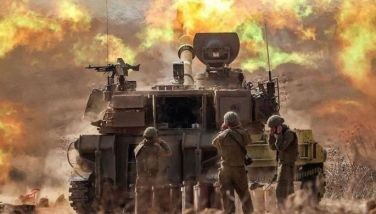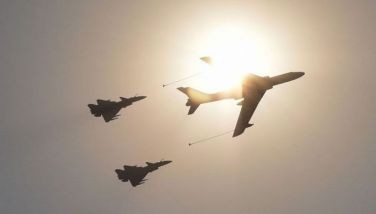UN panel seeks push toward nuclear disarmament
GENEVA — A majority of countries on a UN-mandated panel on Friday called on the UN General Assembly to consider launching multilateral negotiations on nuclear disarmament, voting in a process that has been boycotted by the world's nuclear-armed powers.
Thai ambassador Thani Thongphakdi, who chaired the Open-Ended Working Group on Nuclear Disarmament, hailed a "strong signal" but said many countries would have preferred consensus among voting members.
The panel voted 68 to 22, with 13 abstentions, on Friday on a broad-ranging text that among other things recommends that the General Assembly take up efforts toward launching multilateral negotiations on nuclear disarmament at its next meeting.
Nuclear-armed powers including Russia, China and the United States have rejected the process. Japan, which is sensitive about nuclear issues after experiencing two atomic bomb strikes in World War II, abstained from the vote.
Toshio Sano, Japan's ambassador to the UN's Conference on Disarmament, praised "many positive elements" in the text, such as calling for education about nuclear disarmament, but said envoys didn't devote enough time toward trying to reach consensus.
"We are deeply concerned that the adoption by voting will further divide the international disarmament community and undermine the momentum of nuclear disarmament for the international community as a whole," he told the body after the vote.
Alyn Ware, who coordinates the advocacy group Parliamentarians for Nuclear Non-Proliferation and Disarmament, said the working group was split in two camps: A "hard- line" faction favoring a treaty that calls for the abolition for nuclear weapons right now, and another preferring "incremental measures."
Ware called the vote a "good thing," but said the countries that support a treaty will now face a tough task of convincing nuclear-armed nations to join the process.
"If you just have a treaty adopted by non-nuclear states, the nuclear weapons states and allies could ignore it," he said, calling for pressure on nuclear-armed powers to adopt "no first use" policies, move toward banning use, cut their arsenals and "give up the idea that you have security by threatening to blow up others."
In the United States, the Obama administration has been considering instituting a "no first use" policy before he leaves office, but has faced criticism in Congress and beyond and isn't expected to move quickly to institute it.
- Latest
- Trending




























